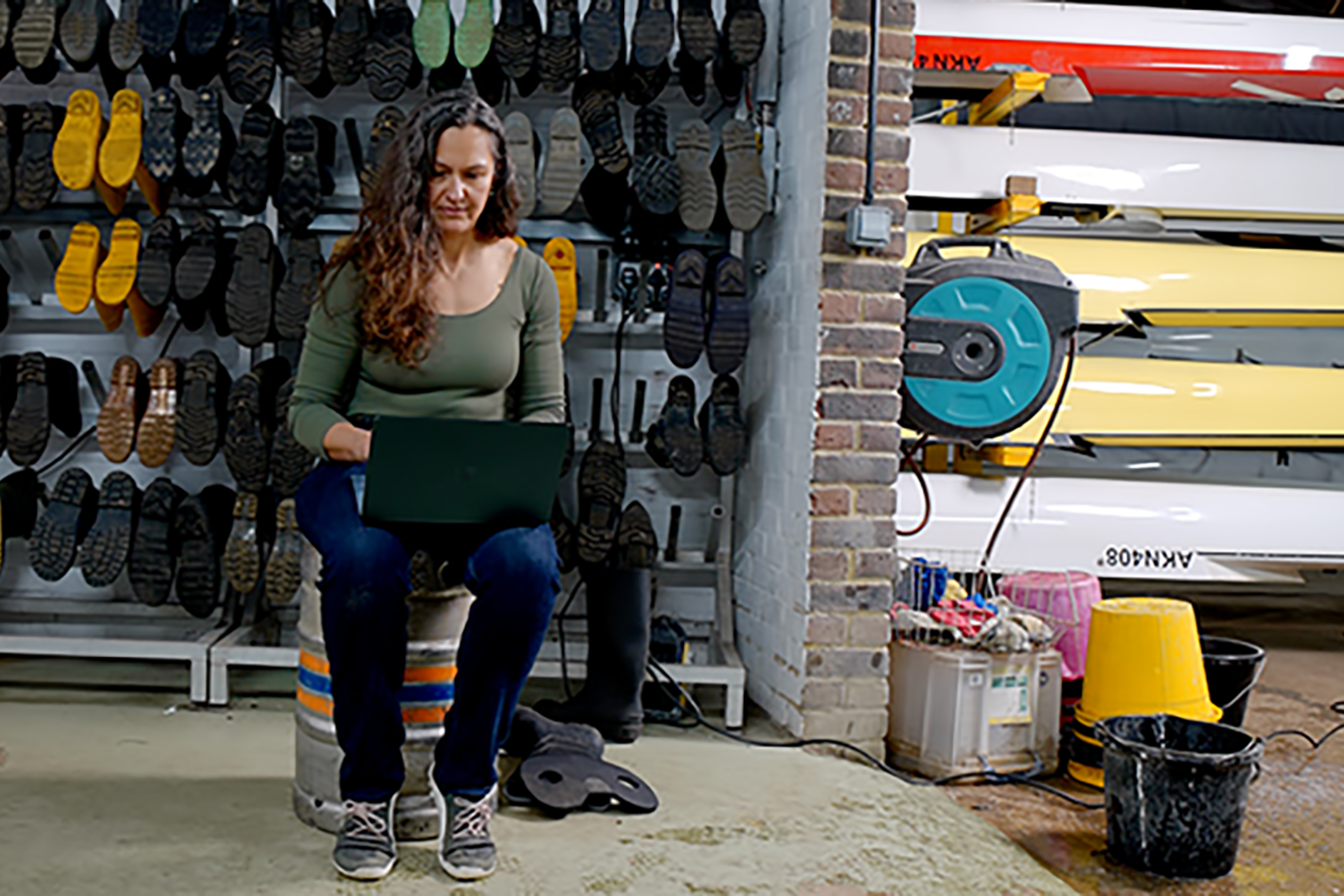
I don’t want to be overly dramatic, but this wave of technology is as transformational as the Internet,” says Aaron Harris, chief technology officer of accounting software company Sage.
Harris is talking about the way artificial intelligence is changing productivity in small and medium-sized businesses (SMBs). And Sage should know given its AI productivity assistant Sage Copilot software has been developed from scratch. “We’re not creating a world where bookkeepers and accountants and auditors are going to get replaced by technology,” he says “We’re creating a world where AI technology will support and enable them to do more valuable things and in a more rewarding way.”
In other words, Sage Copilot is freeing small business owners to do less of the tactical work – sorting out the books – and more of the things they love, such as identifying new opportunities to grow their businesses. To Harris, AI is bringing an industrial revolution for industrious people.
There was a time when Sage was itself a small business. It began in 1981 as a three-person accountancy software enterprise in Newcastle Upon Tyne, UK. By the 1990s, it had been listed on the London Stock Exchange as a £20m company. Now it is a global technology firm focused on using its 11,000 employees to serve small-to-medium sized businesses in more than 20 countries.
“
We’re creating a world where AI technology will support and enable accountants, auditors and bookkeepers
“
Those kinds of resources have been vital in building AI into its products, an endeavour that started nearly eight years ago. Sage’s AI developers focused first on “task-based” AI. “This is AI that does a specific thing like look for the total on an invoice, or spot a clerical error,” Harris says. This is enormously useful to customers but it runs quietly behind the scenes rather than as a feature that customers would interact with. However, the recent emergence of more people-friendly “generative” AIs opened up an opportunity to take things to the next level.
Generative AIs produce outputs – words, pictures and data analyses for example – in response to users’ “prompts”. These prompts are requests for information or a service. Chat GPT, for instance, will write an essay on any specified subject, redraw an image to turn friends into cartoon characters, or give a readable summary of medical information supplied by a GP.
High accuracy
Sage can’t just use a general-purpose AI like ChatGPT, though. The ability of generative AI systems to hallucinate–to make things up—is well known. By contrast, Sage Copilot’s output has to be utterly beyond doubt in every case. “We had to hit very high levels of accuracy, predictability and reliability,” says Harris. “Getting things 95 per cent right just doesn’t cut it in our industry.”
So Sage built and trained its own systems, what the company calls authentic intelligence, rather than embedding someone else’s technology into its products. It improved accuracy using ringfenced training data that was finely tuned for the intricacies of accounting along with multiple layers of validation and cross-checking to ensure accurate results.
This process was enabled by Sage’s AI infrastructure. For starters there’s the “Sage AI Factory”: a development environment that produces finely-tuned AI models trained on the expertise it has accumulated in accounting, payroll and compliance. The company also runs regular “hackathons” where its developers innovate, stress-test systems and learn from each other. Sage publishes its data and AI principles to ensure systems offer full transparency, traceability and accountability. “Transparency is key to trust,” Harris says.
Fully compliant
With all this in place, the company launched Sage Copilot in February 2024. It is now being used by a range of small and mid-sized businesses (see Box below). The technology does everything you’d expect, including supporting real-time financial reporting and the auto-enrolment of employees in pension schemes. It chases unpaid invoices helping businesses stay in control of their cash flow and helping get paid up to seven days faster.
It fulfils compliance requirements too: Sage has long worked closely with HMRC, who fully support the move to incorporate AI into accounting. “What’s interesting is that they want us to do more,” Harris says. “They want SMBs to have access to the technology we’re building.”
Sage Copilot’s current incarnation is only the beginning. Agentic AI, autonomous, intelligent systems that need minimal human prompting, is imminent. Unlike simple assistants, Sage’s AI Agents take full ownership of tasks, such as reconciling accounts, from start to finish and deliver the outcome back to the customer. Operating in the background, they spot risks and opportunities, ensure compliance, optimise productivity, and even pursue goals such as social responsibility or carbon-footprint reduction. Yet customers remain firmly in control, says Harris. Sage embeds trust and transparency into every layer of its AI, so agents can be trusted to complete jobs and act within the permissions each user sets.
But Sage isn’t rushing this product to market – it’s too important for that. “We have to maintain customer trust,” Harris says. “So we’re opening it up gradually and developing confidence with our users.”
Harris couldn’t be more excited about how the journey into the hi-tech future of accounting is playing out. “We started off by saying some very provocative things to our customers about what we were going to do with AI,” he says. “Now they are recognising that the big, bold, provocative future we described to them is becoming a reality.”
And all, in a very accountant-like manner, with no drama.

Nadia Fontaine is the volunteer treasurer of the Auriol Kensington Rowing Club in Hammersmith, London. At any one time, she can have 100 invoices that need her attention – either to draft and send, or to chase. Sage Copilot now does all of that for her.
“I save more than 5 hours of admin every week, making my life so much easier,” Fontaine says. Copilot has improved the club’s cashflow by chasing late payers and allows Nadia to spend more time keeping fit, fundraising and rowing on the Thames.
There’s a similar success story to share at Tyne Chease in North Shields, a company that has pioneered the UK’s first nut-based artisan cheese. Here, Sage Copilot’s effect on the business’s cashflow has been transformative. “Copilot has really sped up how quickly we get paid,” says Adam Williams, the firm’s general manager. “Depending on how busy we are, I sometimes wouldn’t be chasing up overdue invoices, which were getting paid up to a week later than they needed to be,” he explains.
”Now that Copilot prompts that and automates a lot of it, we get paid much quicker.”
Find out more about Sage Copilot here
Read how to Supercharge your small business with this AI toolkit here
